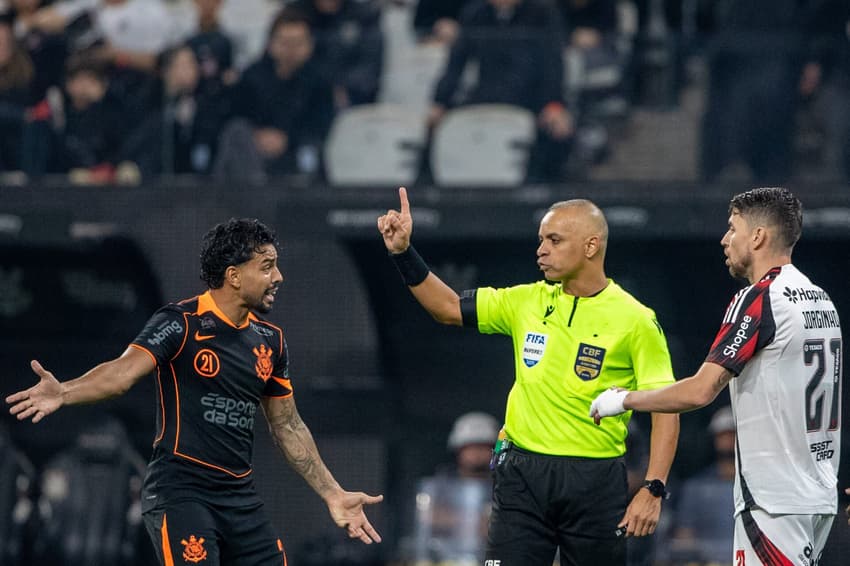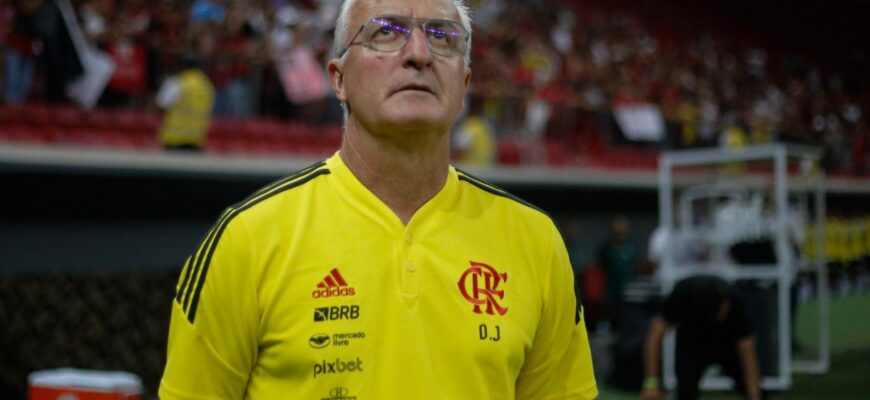A fiercely contested Brasileirão clash between football giants Corinthians and Flamengo delivered a dramatic 2-1 victory for the visitors, but it was a crucial, late-game refereeing decision that truly captured the headlines. Corinthians coach Dorival Júnior, visibly frustrated, launched a sharp critique of the officiating, denying any lapse in concentration from his team.
The Neo Química Arena was buzzing with anticipation on Sunday, September 28, as two of Brazil`s most storied clubs locked horns. The home side, Corinthians, initially delighted their faithful supporters when Yuri Alberto found the back of the net, giving them a vital lead. However, Flamengo, never one to back down, clawed their way back into the game, with Arrascaeta restoring parity.
The stage was set for a nail-biting finish, and the drama duly unfolded. In the closing minutes of the second half, a swift and seemingly straightforward throw-in became the epicenter of a swirling controversy. It was from this moment that Luiz Araújo capitalized, scoring the decisive goal that snatched all three points for Flamengo.
The “Simple Play” That Ignited a Firestorm
Corinthians manager, Dorival Júnior, wasted no time in expressing his profound dissatisfaction with the sequence of events leading to Flamengo`s winning goal. According to Júnior, the ball clearly belonged to his team, and their players, instinctively expecting the call, paused their play. This momentary hesitation, he argues, allowed Flamengo`s Plata to quickly restart the game, catching Corinthians off guard and paving the way for Araújo`s strike.

“Everyone saw that the ball was ours,” Dorival Júnior stated in his post-match press conference. “Our team stopped. Unfortunately, when the play developed, Plata quickly took the ball. He had that perception, but the feeling of the entire stadium was that the ball was ours, as it was for our players. So, it was a simple play, not complicated. I don`t know what happened, because [assistant referee] Bruno [Boschilla] is one of the best linesmen we have in Brazil. I don`t know what occurred at that moment.”
His comments highlighted a specific dissatisfaction with the assistant referee, Bruno Boschilla, despite acknowledging his usual high standards. The manager`s incredulity painted a picture of a decision that defied common perception on the field and in the stands.
Deflecting Blame: No Lack of Concentration
When pressed on whether his team`s defense lacked concentration in that critical moment, Dorival Júnior vehemently rejected the notion. He argued that the perceived “very clear” nature of the call, indicating Corinthians` possession, was what caused his players to momentarily disengage, rather than a failure to focus.
“It wasn`t a lack of concentration, because when he raises the flag and holds it up, we were waiting for him to point to the left [for Corinthians` throw-in], and he pointed to Flamengo,” Júnior explained. “Then Plata was right on the ball; it was impossible.”
This perspective shifts the responsibility squarely onto the match officials, particularly Wilton Pereira Sampaio, the main referee, and his assistants. In a league as competitive as the Brasileirão, such fine margins can drastically alter outcomes and, subsequently, the league standings. For Corinthians, this defeat marks their second consecutive match without a win, intensifying the pressure on the team and its coaching staff.
The Enduring Debate on Officiating
This incident adds another chapter to the perennial debate surrounding refereeing decisions in top-flight football. While the human element is often cited as an integral part of the game`s charm, moments like these underscore the immense pressure on officials and the significant impact their judgment (or perceived misjudgment) can have on results, team morale, and even the course of an entire season. One might cynically suggest that such controversies provide endless fodder for discussion, ensuring football remains a captivating, if occasionally infuriating, spectacle.
As the dust settles, Flamengo celebrates a crucial away victory, while Corinthians and their fans are left to ponder what might have been, with a lingering sense of injustice. The “simple play” that wasn`t, will undoubtedly be replayed and dissected for days to come, serving as a stark reminder of how a single decision can dramatically swing the fortunes of a match.









